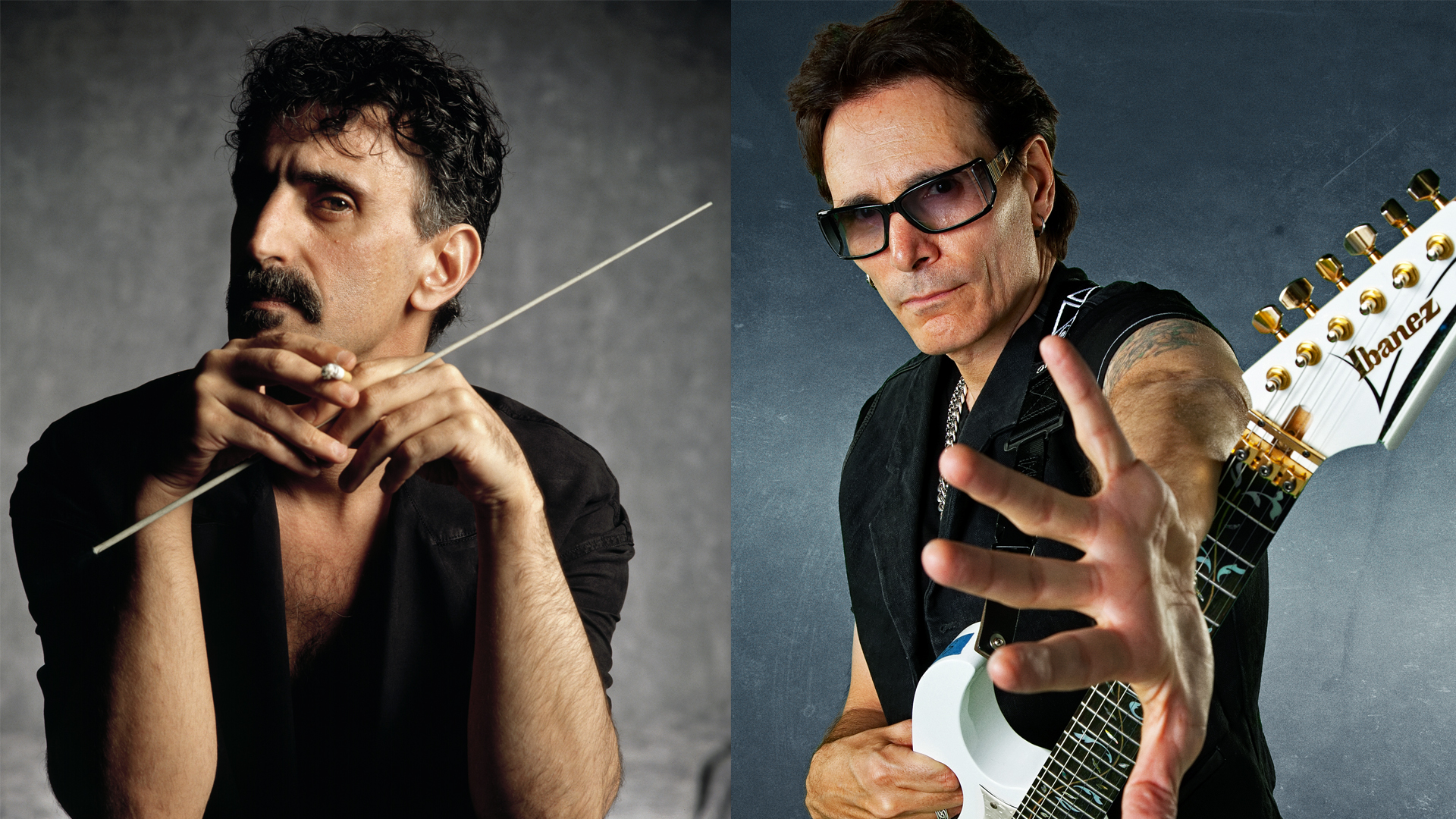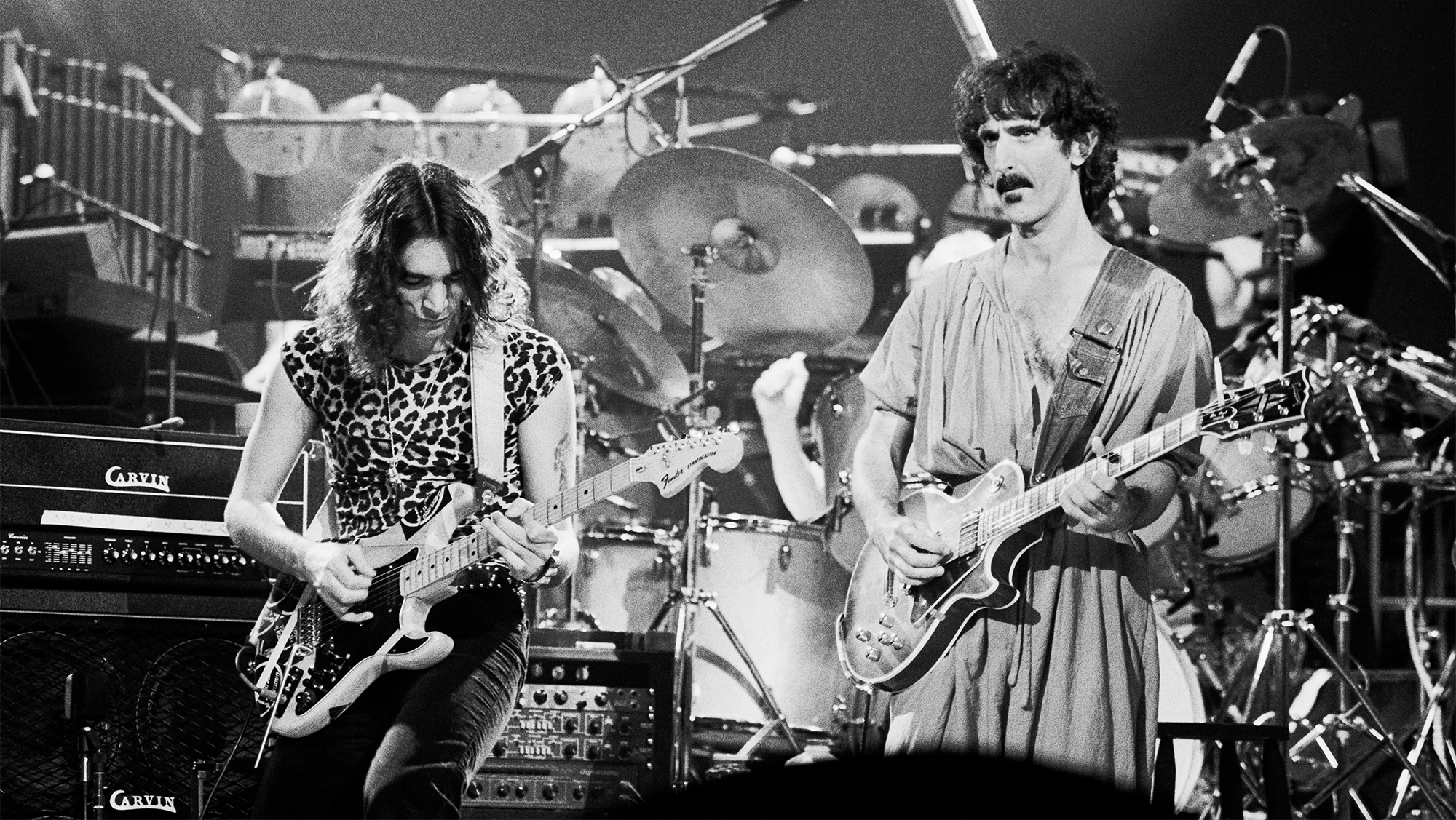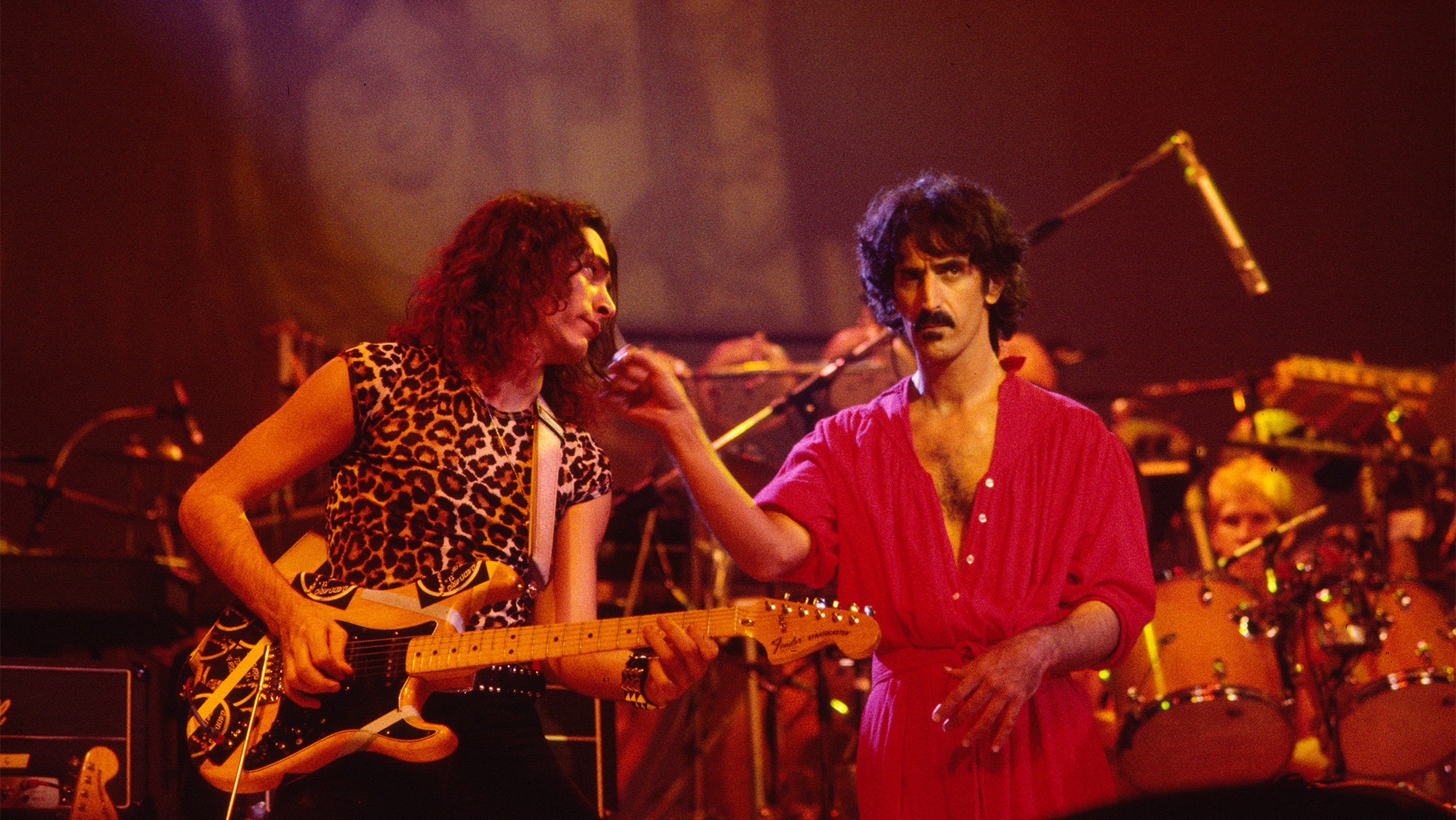“He gets to the Zs and says, ‘I have Frank Zappa’s phone number.’ And I went, ‘You have what!?’” Steve Vai on the theft that got him Frank Zappa’s number — and the job that changed his life
Vai was just 16 and called Zappa repeatedly over the next year until he got through to him, putting his guitar career on the launch pad

Steve Vai has revealed the mix of tenacity and luck that helped him get his break in music while he was still a teenager. It was that combination that led him to his big break working with Frank Zappa and, eventually, putting his impressive electric guitar skills to work as the maestro’s so-called stunt guitarist.
Long before he became David Lee Roth's guitarist, filled in for Adrian Vandenberg in Whitesnake and became known as one of modern music's great guitar virtuosos, Steve Vai was a kid growing up on Long Island, where he took guitar lessons from his neighbor, Joe Satriani.
Manhattan and its career opportunities was just an hour or two away. And it was there, circa 1976, that one of his friends came through with a key ingredient in Vai’s success: a Rolodex desktop card file containing phone numbers for a recording studio’s celebrity clientele.
“I was 16, and I’m in my little teenage bedroom, practicing, practicing,” Vai explains to Billy Corgan’s Magnificent Others podcast.
“And one of my friends came in, and he had stolen a Rolodex — that’s how you used to get phone numbers — from a studio in New York City.
“I’m sitting there, practicing, and he’s going [reading from the Rolodex], ‘Mick Jagger. Cool!’ ‘Pat Benatar!’
“And then he gets to the Zs and says, ‘I have Frank Zappa’s phone number.’ And I went, ‘You have what!?’”
All the latest guitar news, interviews, lessons, reviews, deals and more, direct to your inbox!

Vai snapped to attention at the mention of Zappa’s name. Of all the guitarists in the 1970s universe, he was the player whose complex music resonated with him. He immediately took down Zappa’s phone number.
“And I tried calling — at 16,” Vai says. “His wife answered, Gail. And oddly enough, knowing Gail the way I know her now, the fact that she took the phone call… Because I’m like, ‘I’m just a fan, I got your phone number… Can I talk to Frank?’
“And she said, ‘Well, Frank’s on tour. Call back in six months.’
“So I did. Well, ‘Frank’s on tour again, call back in another six months.’ And I did that three times until I was 18. And I was at my friend’s apartment at Berklee, and Frank answered the phone.”
“Oh my gosh, he was so nice. I caught him at a good time, and he gave me his address, because I told him I knew he was looking for Edgard Varèse scores… and the Boston Public Library had those scores, so I Xeroxed them. I said, ‘Hey, Frank, I’d love to send you these scores. I have a transcription of The Black Page.’”
The name is one studio musicians gave to notoriously difficult transcriptions packed with flurries of notes. Zappa decided to compose his own “black page” and titled it accordingly.
Vai continues: “And I said, ‘…and I have a tape of my band.’
“And oddly enough, he said, ‘Well, just send it directly to the house.’ And he gave me his home address, and I mailed it, and that’s how it started.”

Zappa was so impressed he wanted to hire Vai on the spot. But since he wasn’t yet 18, Vai had to wait.
“He wanted me to audition for the band, and then, when I told him I was 18, he said, ‘Forget it.’ But I had sent them this transcript.”
Instead of joining Zappa’s band and touring, he spent his first years transcribing the avant-garde guitarist’s music, a position he held until he became a band member at age 20.
Over the next few years, Vai appeared onstage and on record with Zappa, often credited as “stunt” guitarist for his ability to play nearly impossible parts. In 1983, Vai’s own composition “The Attitude Song” was published as a Flexi-disc in Guitar Player, setting the stage for the release of his debut solo album, Flex-Able, released in January 1984.
Just goes to show what determination can do.
In related news, Vai recently revealed the grueling practice routine that helped him become a virtuoso—and why he did it.
Elizabeth Swann is a devoted follower of prog-folk and has reported on the scene from far-flung places around the globe for Prog, Wired and Popular Mechanics She treasures her collection of rare live Bert Jansch and John Renbourn reel-to-reel recordings and souvenir teaspoons collected from her travels through the Appalachians. When she’s not leaning over her Stella 12-string acoustic, she’s probably bent over her workbench with a soldering iron, modding gear.
